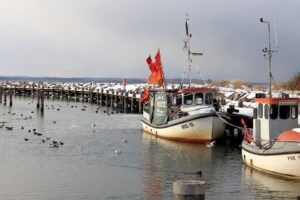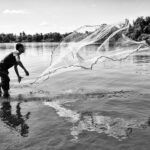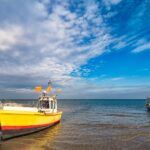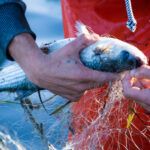Based on the latest available scientific advice, the Commission proposes to increase fishing opportunities for herring in the Gulf of Riga and maintain the same levels for salmon in the Gulf of Finland. For remaining stocks covered by the proposal, the Commission proposes to decrease fishing opportunities.
Karmenu Vella, Commissioner for Environment, Maritime Affairs and Fisheries said: “Despite efforts by our fishermen and authorities, the situation of fish stocks in the Baltic is serious, particularly for eastern Baltic cod and western herring. In line with scientific advice we propose a prudent package to ensure that sustainable fisheries can continue in the Baltic Sea over time.”
The proposed total allowable catches (TAC) are based on scientific advice from the International Council on the Exploration of the Seas and follow the Baltic multiannual management plan adopted in 2016 by the European Parliament and the Council.
Efforts by fishermen, industry and public authorities had, in recent years, succeeded in rebuilding important stocks in the Baltic Sea. Where complete scientific advice is available, decisions on the Baltic fishing opportunities had succeeded in setting fishing opportunities for 7 out of 8 stocks in line with the principle of maximum sustainable yield (MSY), covering 95% of fish landings in volume. However, scientists have discovered that the situation was less stable than previously estimated. Decisive action is therefore necessary to rebuild all stocks and to ensure that they grow to or remain at sustainable levels, in line with MSY.
The Council will now examine the Commission proposal, in view of adopting it during a Ministerial meeting on 14-15 October.
Cod
For eastern Cod, scientists found that the stock size has decreased substantially and has been below safe biological limits for some time already. Therefore, in July, the Commission adopted emergency measures for the remainder of 2019, prohibiting the fishing of cod in the areas where eastern Baltic cod is most present. For 2020, the Commission proposes to allow by-catches only. Moreover, it proposes to extend the existing spawning closure period in time and scope, and to prohibit recreational fishing in those areas where eastern Baltic cod is most present.
Western Baltic Cod had been at very low levels for several years. However, last year, indications showed an increasing stock size. Based on this, the total allowable catches for 2019 were 70% higher. Unfortunately, the most recent scientific observations indicate that the stock size did not increase as much as previously estimated. Therefore, the Commission proposes to reduce the total allowable catches by 68%, to re-introduce a spawning closure period and to reduce the limit for recreational fishermen to 2 specimens per day. Furthermore, the Commission proposes to limit the use of the TAC in deeper waters to by-catches and to prohibit recreational fishing for cod. These measures are necessary because of the mixed presence of both western and eastern Baltic cod in a specific area and the exceptionally bad condition of the eastern stock.
Herring
The stock size of western herring remains below safe biological limits. The Commission therefore proposes to reduce the total allowable catches by 71% which, according to scientific advice, is estimated to bring the stock size back above safe biological limits in 2022. For central herring, the Commission is proposing a reduction of 10%, since the stock relies on only one year of good reproduction, and a reduction of 27% for the Gulf of Bothnia in line with ICES advice, while the situation for Riga herring allows for an increase of 11%.
Plaice
While the plaice stock in the eastern Baltic continues to grow, the biomass of the larger stock in the West was revised substantially downwards. Following scientific advice on the maximum sustainable yield, the Commission proposes to reduce fishing opportunities by 32%.
Sprat
The biomass of sprat was revised down and the stock relies on only one year of good reproduction. In line with scientific advice, the Commission therefore proposes a reduction of 25%.
Background
The proposal is part of the European Union’s approach to adjust the levels of fishing to long-term sustainability targets, or maximum sustainable yield (MSY) by 2020 as agreed by the Council and the European Parliament in the Common Fisheries Policy. The Commission’s proposal is also in line with the policy intentions expressed in the Commission’s Communication on Fishing Opportunities for 2020 and with the Multiannual Plan for the management of cod, herring and sprat in the Baltic Sea.
More information







Leave a Reply